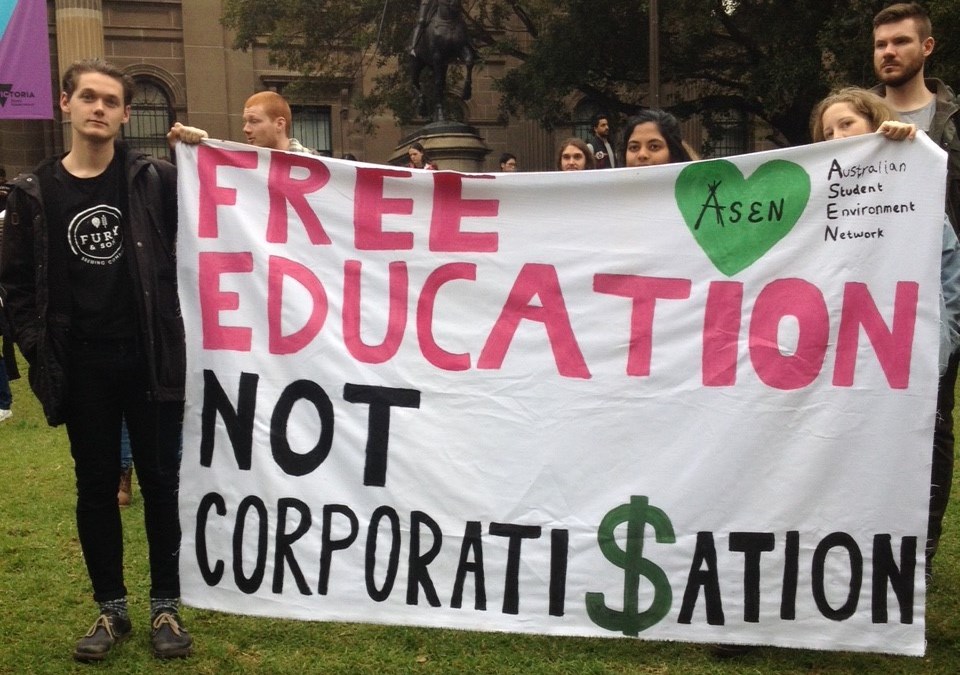By Gus McCubbing | @GusMcCubbing
Roughly 500 students gathered to protest the Government’s changes to higher education funding in the federal budget outside the State Library this afternoon.
These changes include a hike in student fees and a lowering of the HECS income repayment threshold from $55,000 per year to $42,000, resulting in an estimated saving of $2.8 billion for the Federal Government.
Before the release of the federal budget Education Minister Simon Birmingham told Leigh Sales on ABC’s 7.30 program the new policy was “quite measured, quite modest and quite balanced.”
“We’re trying to maintain fairness and equity across this system,” he said.
In her speech at the protest this afternoon, National Tertiary Education Union (NTEU) national president, Jeannie Rea, said these cuts were designed to limit public access to critical education.
“What this budget is about is cutting government investment—taxpayers’ money—going into public universities,” she said.
“It’s not about saving money and budget repairs…it’s actually about an attack on the rights of ordinary people to go to university and get the advantages of going to university and to challenge conservatism and neoliberalism.”

The National Union of Students (NUS) women’s officer, Abby Stapleton, highlighted the connection between higher education funding cuts and the pay-gap between men and women.
“Women make up 56% of all enrolled university students, yet our nation-wide average earnings is $52,000, compared to $72,000 for men,” she said.
“This gap exists because women are discriminated against in the workplace, and because women are over-represented in the casual work sector.
“The Liberals want to lower the HECS repayment threshold from $56,000 to $42,000… but if we’re earning $20,000 less than men, we will be the most severely impacted by this.”
More than 180,000 graduates will be affected by the Government’s changes to higher education funding changes, with 62% of these graduates being women, Ms Stapleton said.
“So there is no question that lowering the repayment threshold will mean that more women will be condemned to a lifetime of debt,” she said.

The NUS queer officer, Chris Di Pasquale, quipped that if you were to believe claims made by the Government and parts of mainstream media, young people must be consuming coffee and smashed avocado by “pumping it into their veins intravenously” every day.
Mr Di Pasquale then said while life isn’t actually all that easy for young people today, they still have the power to stand in strong numbers against funding cuts to higher education. “There is something that young people and students always have, which is our audacity and our willingness to defy the powers that be,” he said.
“Power concedes nothing without a fight, and I think that’s the kind of politics that we need to have.”

